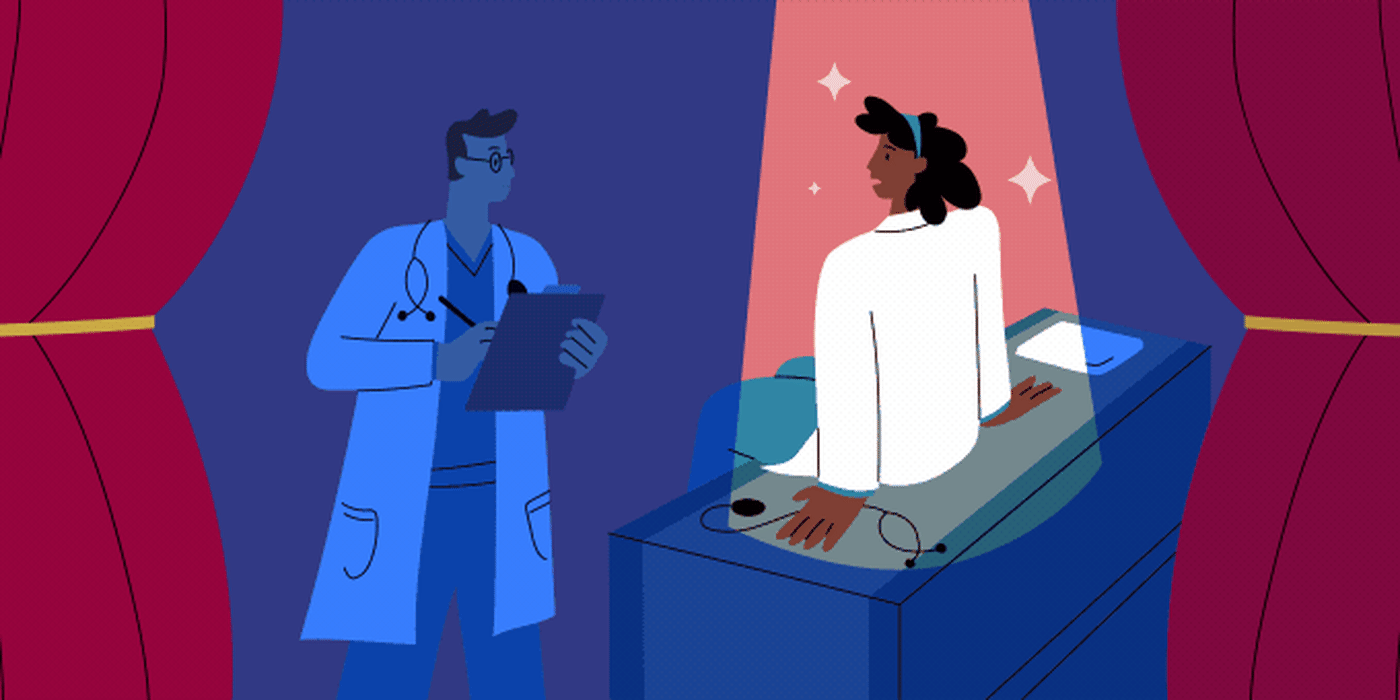I was struggling with a minor health issue for months when I finally decided to seek medical attention. Convinced I could diagnose and treat myself, I delayed going to the doctor and instead consulted online resources such as UpToDate and, I am embarrassed to admit, Google. Frustrated with the lack of improvement, I finally texted two colleagues to get some much-needed guidance.
I am still in awe of what happened next.
I had office appointments with an ENT and neurologist within 24 hours, an MRI the next day, and a pain injection the day after that. What would have typically taken weeks was accomplished in fewer than three days.
The care I received was not just timely, it was compassionate and personal. Knowing I was worried, the radiologist called with my MRI results (thankfully, normal) late on a Friday evening, a mere hour after I left the radiology center. My ENT physician called in a prescription at 9 p.m. My colleagues texted me the next day to see how I was doing. This level of health care is unimaginable for most patients.
In the spring of 2020, during the initial COVID-19 wave, my father-in-law was diagnosed with urologic cancer. Within two weeks, he underwent a biopsy, saw an oncologist, had a nephrectomy, and had his port placed. He received care from excellent physicians I know and trust. When hospital COVID-19 protocols prevented his spouse and children from visiting, I was able to see him, provide updates, and send videos of him taking his first postoperative steps.
I have often envied my friends working outside the medical field for the job perks they enjoy. They travel in style for work — luxuriating in business class airline seats and enjoying five-star hotel stays. Meanwhile, my perks seemed limited to a hospital-branded fleece jacket and the yearly Doctor’s Day luncheon; even the beloved pharmaceutical pens have gone away.
These tokens of appreciation from the hospital, while thoughtful, pale in comparison to the seven-course dinners and regular use of the company car service my friends in the “outside” world get to enjoy. (I mean, if anyone needs car service, isn’t it the trauma surgeon coming off a 24-hour shift?)
My recent health events jolted me from this sense of resentment.
I now realize that physicians are blessed with the most important job perk of all — the ability to access high quality, expedited medical care for ourselves and our families from people we know and trust. Admittedly, access to health care lacks the cachet of plump year-end bonuses and corporate golf outings, but I would argue there is nothing more valuable than expedited access to great medical care when you need it.
The best thing about this perk? It doesn’t go away when we stop working; it is for life. Even after we retire, our colleagues will make room for us in their packed schedules, call us at night to check in, and communicate with our family members as if they were their own.
My experience receiving excellent care was humbling. It also highlighted for me another benefit of being a physician — providing health care for your colleagues and their families.
As burned out as we can get from the daily grind of patient care, just think about how energized you felt the last time a colleague reached out for help with a personal health issue. Being entrusted with caring for your peers provides immediate validation of what we do every day in a way that our monthly RVU productivity numbers cannot.
Most importantly, helping our fellow physicians just feels good. These are special patient interactions that, even when wedged into the middle of an already tight office schedule, bring us joy and add significance to our daily work.
The lifelong exchange of medical care between medical professionals is arguably the best perk of working in the medical field, one that is often overlooked in our younger years when we are focused on more immediate concerns, like paying off student loan debt and growing our nest egg.
As we enter midcareer and beyond, our need for medical care will only increase. It is reassuring to know that we will have an army of trusted doctors at the ready should we need them.
I recently had my first screening colonoscopy. As a gastroenterologist, I briefly contemplated going somewhere besides my own endoscopy unit, for privacy purposes, but quickly realized I wanted my gastroenterology, anesthesia, and nursing colleagues caring for me. I was slightly apprehensive about going under sedation (my first time) but was put at ease upon entering the unit and seeing familiar faces.
I woke up in recovery feeling relaxed and peaceful. My anesthesia and gastroenterology colleagues reported that the colonoscopy had been uneventful and signed off with a friendly fist bump. On my way out, one of the nurses offered me an apple juice and a freshly baked muffin. No one would mistake this humble postcolonoscopy snack with dinner at a fancy, Michelin-starred restaurant, but I must say, that muffin sure did taste good.
Share your favorite perks of being a clinician in the comment section.
Anish A. Sheth, MD, is chief of gastroenterology at Penn Medicine Princeton Health and author of several books on digestive health, including the best-seller, "What's Your Poo Telling You?"
Illustration by Diana Connolly







